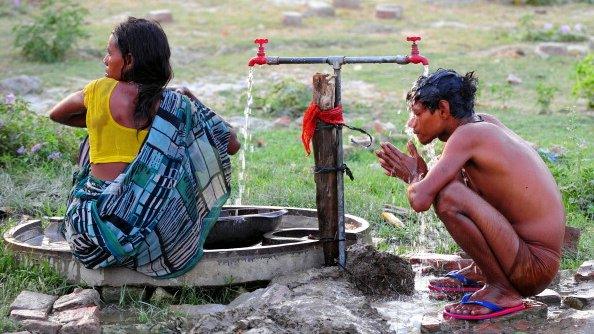The Bollywood film breaking the taboo around periods
- Published
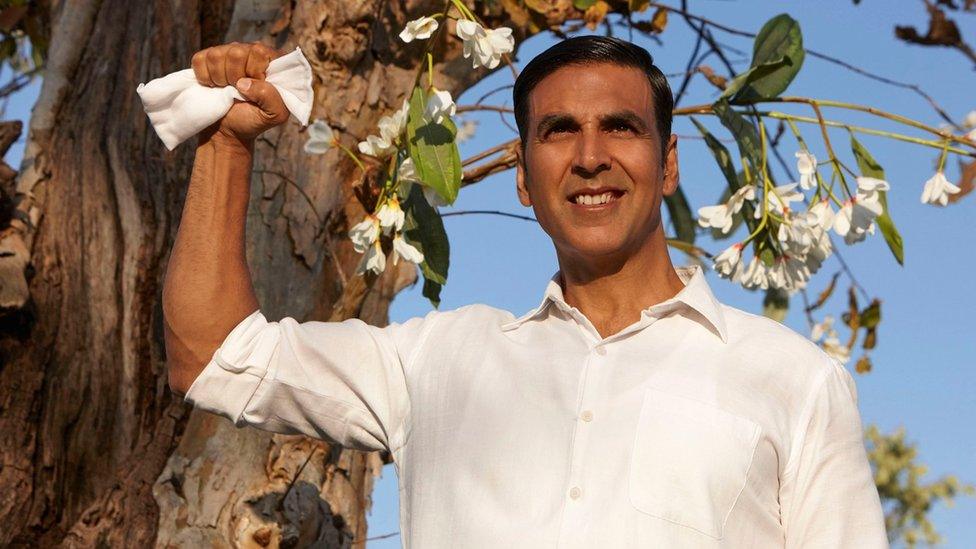
Bollywood star Akshay Kumar plays Arunachalam Muruganantham
The world's first feature film on periods is set to be released in the UK. Can a comedy help break the taboo of female menstruation?
It's a scene that captures the 20-year struggle by a poor school drop-out from southern India to buy sanitary pads for his wife - and ended up changing the lives of millions of women around the world.
Arunachalam Muruganantham - played by Bollywood star Akshay Kumar - cycles through his local village waving cheerfully.
Unbeknown to his neighbours, he is testing the effectiveness of his new invention by wearing pink pants and a home-made sanitary pad which is slowly filling with goat's blood from a football bladder tied around his waist.
But behind the laughter of the comedy- Pad Man - is the true story of how Muruganantham invented a low-cost machine that revolutionised women's healthcare.
It started in 1998 when newly married Muruganantham noticed his wife Shanti hiding something.
"It was a nasty rag cloth - she was going to use it during her menstruation. I wouldn't even use it to clean my vehicle," he tells the BBC's Victoria Derbyshire programme.
"So I decided to gift her a sanitary pad. The shopkeeper gave it to me as a smuggled product. Out of curiosity I opened the packet. The cotton product was sold for four rupees (4p) - 40 times what it cost to make."
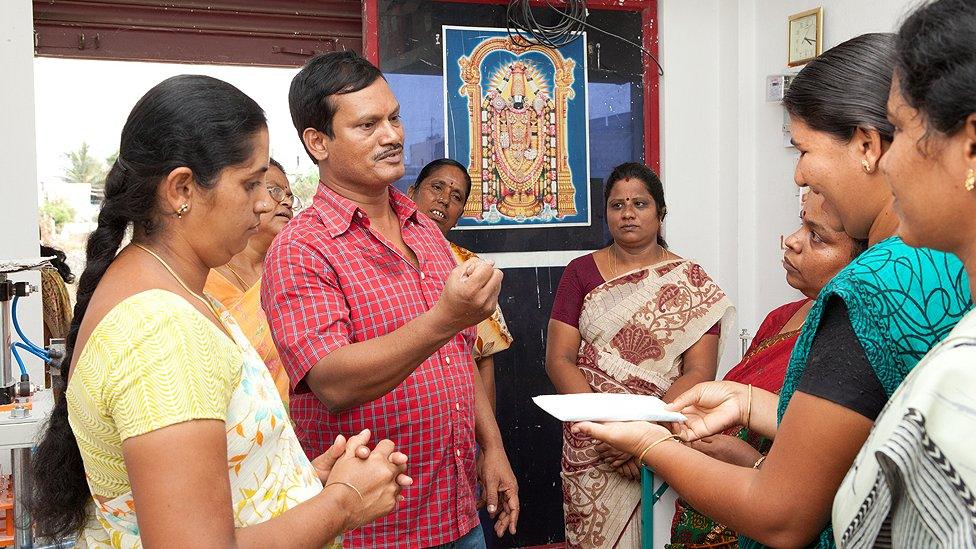
Muruganantham works with non-governmental organisations so his sanitary pads help as many women as possible
Muruganantham, now 55, threw himself into researching a cheaper alternative.
Period poverty leaves an estimated 300 million women in India without access to sanitary products - making them vulnerable to disease, infertility and even death.
He began analysing pads from Western companies, canvassing opinions - and used napkins - of female medical students and, finally, tested his inventions out himself.
"I wanted volunteers to try my new pads and give me feedback - but not even my wife was ready."
It all came at a cost.
"My wife left, mother left. The whole village thought I had a sexual disease," he explains.
But he persevered, and in 2006 launched not-for-profit Jayaashree Industries, which supplies machines making Muruganantham's sanitary pads at cost-price to non-governmental organisations (NGOs) and women's organisations across India.
Today it reaches an estimated 40 million Indian women, and there are plans to take the machines to Kenya, Sri Lanka, Nigeria and Bangladesh.
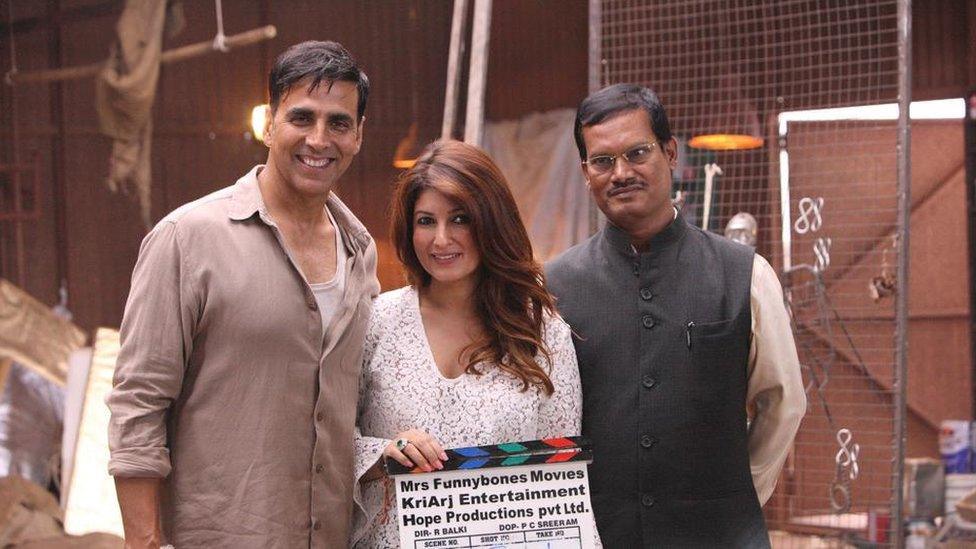
Akshay Kumar, Twinkle Khanna and Arunachalam Muruganantham on the set of Pad Man
Twinkle Khanna, Pad Man's co-producer, spotted his story online and says she was immediately gripped by the magnitude of what he had achieved.
"I thought this was a remarkable story which really needed to reach every household in India, and globally, because I think the taboo around menstruation is not just in India, it's a global problem."
Khanna's husband, actor Akshay Kumar, immediately signed on to play Muruganantham.
The 50-year-old, who is a popular and powerful role model in India, has a history of political message projects and is calling for sanitary pads to be made free for all women in India.
"Tackling the taboo is very important to me, because I am only now learning about the extent of the crises that countries around the world have been suffering with," he tells the programme.
"I'm ashamed to say how little of all this I knew, which is why this issue has become so close to my heart.
"The conversation is starting though - I've seen men talking about pads on my social media account.
"After Pad Man starts the conversation, it will be up to audiences to take it forward and help to end all of the taboos around periods worldwide."
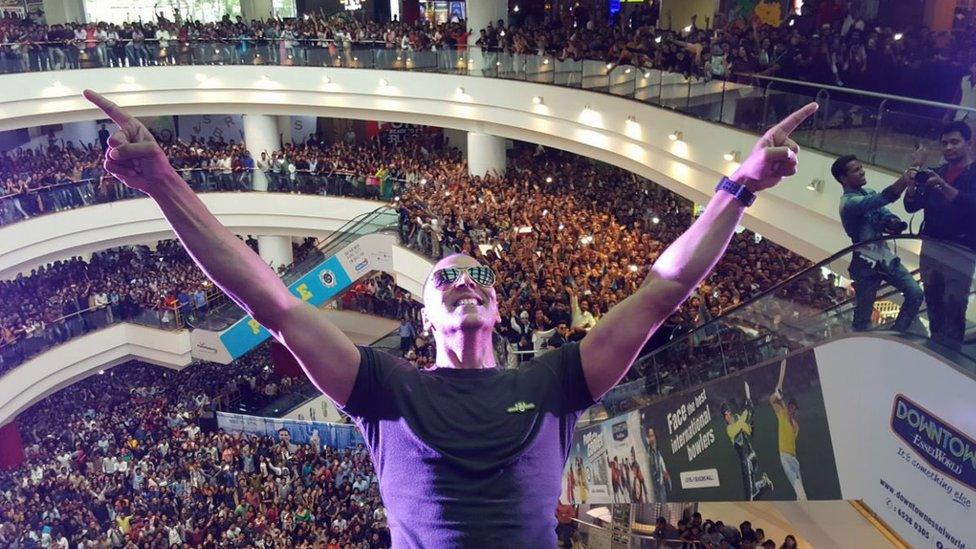
Akshay Kumar is hugely popular in India
But period poverty is not only a problem affecting women in India.
In the UK, one in 10 disadvantaged girls below the age of 21 cannot afford sanitary products, according to charity Plan International UK.
Manjit Gill, who co-runs London based charity Binti - which campaigns against period poverty - says the film is a watershed moment for "smashing shame around periods".
"We have worked with Muruganantham for a few years now - we use one of his machines in India - and he really does have a halo," she says.
"The conversation has definitely been started around this film - the words 'pad' and 'periods' have been used more in the last month than in the last 10 years."
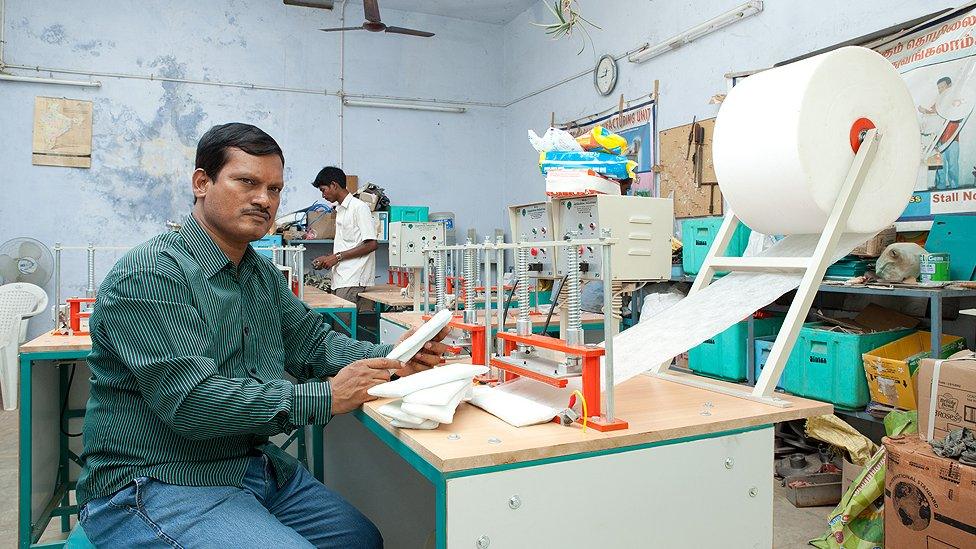
Muruganantham at one of his machines
The potentially revolutionary nature of Pad Man lies not only in how it tackles a subject that is still considered unmentionable in many countries, but also in the vote of confidence from distributors Sony Pictures in giving a foreign language film about periods a worldwide release as a major motion picture.
The real 'Pad Man', who now has a daughter with his wife after she came back to him, feels "happy" about seeing his life on the big screen but prefers to throw a spotlight on the women taking the movement forward.
Despite his success, he owns no shares in his company and earns roughly 70,000 Rupees (£790) a month - enough for him to cover the storage and transportation for the raw material he imports from the US and Germany.
"A school drop-out, to a rural innovator, to now [there being] a movie, shows the power of dreams," Muruganantham says.
"My vision is to make India into a 100% sanitary-pad using country. Menstruation is no more a taboo."
Pad Man will be released across the UK in February.
Watch the BBC's Victoria Derbyshire programme on weekdays between 09:00 and 11:00 on BBC Two and the BBC News Channel.
- Published4 March 2014
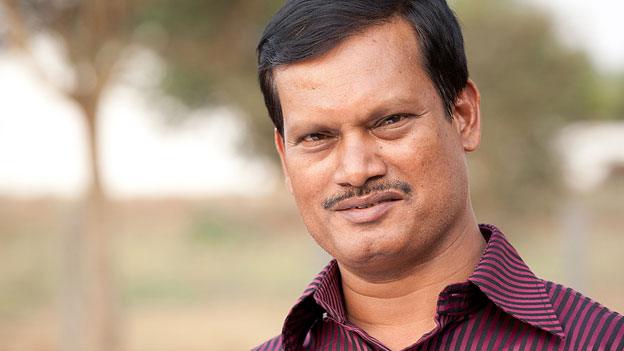
- Published10 July 2017
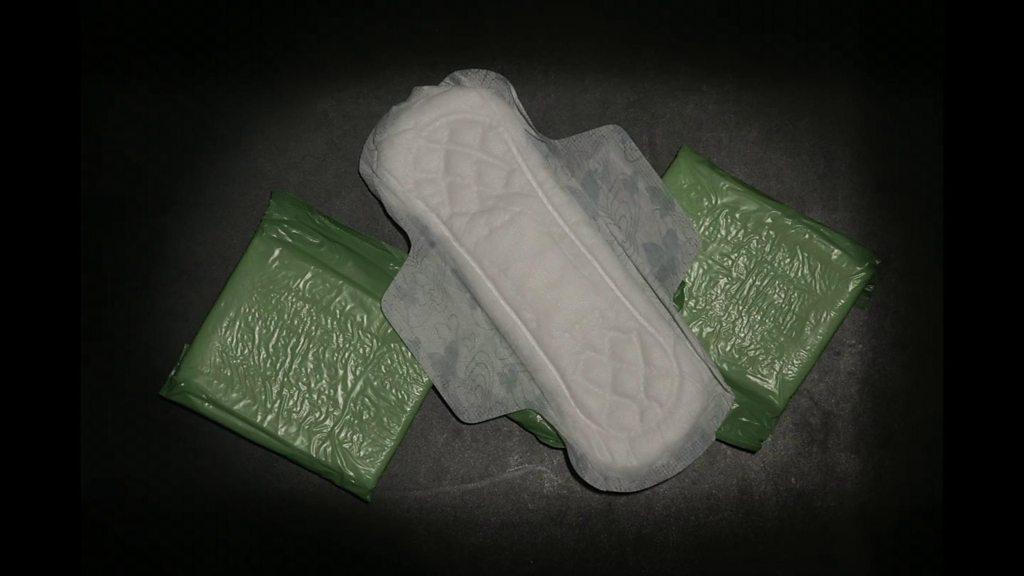
- Published9 September 2017
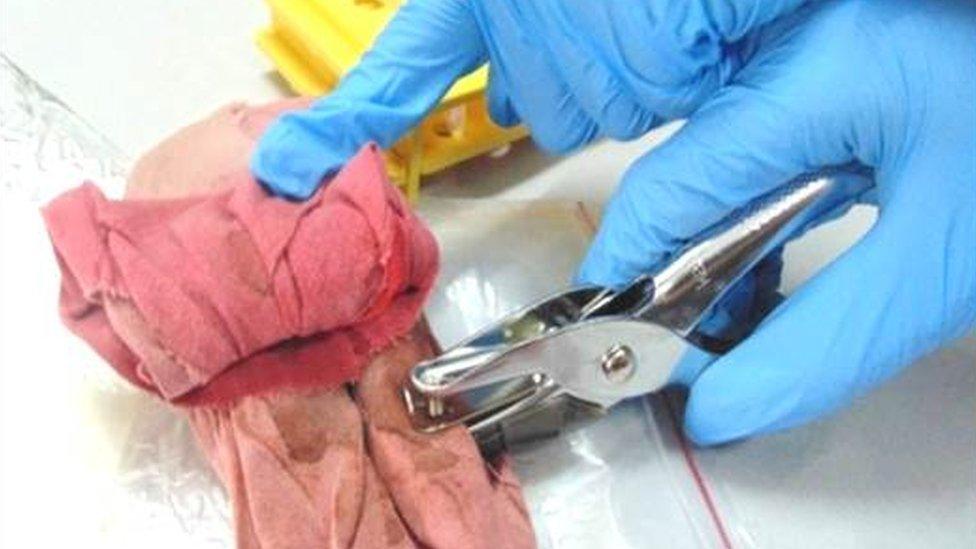
- Published31 August 2017
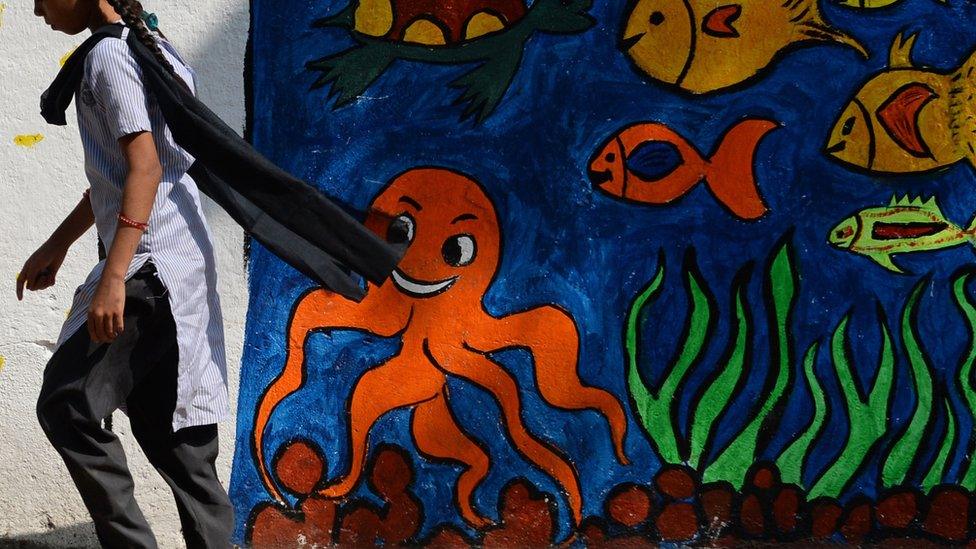
- Published27 October 2014
